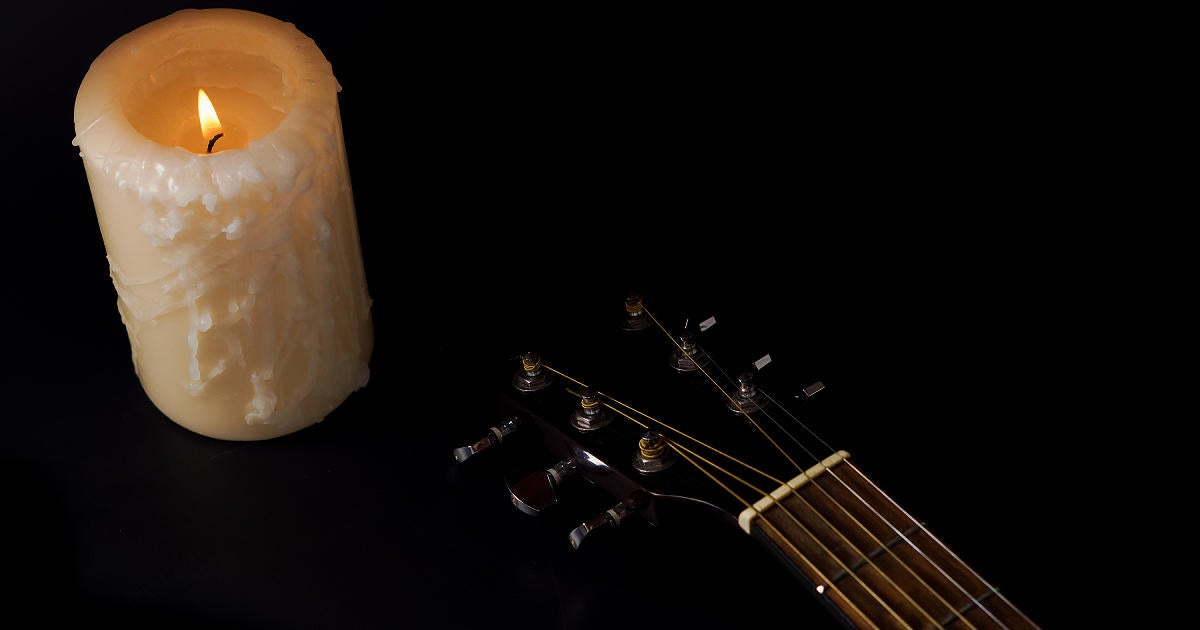Can ‘The Acolyte’ Untether ‘Star Wars’ From the Skywalker Saga?
Star Wars is back in the news—and not in a way that would make Disney thrilled. Last month, YouTuber Jenny Nicholson posted a four-hour video about her experience at Disney World’s Star Wars–themed hotel, Galactic Starcruiser, which shut down within 18 months of its opening. What makes the video so compelling isn’t just the painstaking detail about the hotel’s failures—the exorbitant cost, the malfunctioning companion app, the exhausting nature of a guest’s jam-packed itinerary—but that Nicholson is Galactic Starcruiser’s target audience: a Star Wars obsessive. Nicholson desperately wants to love the product but isn’t afraid to call out bullshit when she sees it. (The whole video is worth a watch and has been helpfully broken up into chapters.)
But perhaps the biggest problem with the Star Wars hotel is that it could never live up to its main selling point: to create a genuinely immersive experience in a galaxy far, far away. The two-night stay is framed as a “choose your own adventure,” where every decision a guest makes affects how they interact with the story. The issue, as Nicholson’s video repeatedly underlined, is the inherent limitations of Galactic Starcruiser’s lofty ambitions—instead of a guest being in control of their own narrative, it seemed far more likely that their path was predetermined by whichever story line had vacancies that needed to be filled. Disney has to shoulder the blame for the hotel’s shortcomings—especially at such a ridiculous price point—but in the interest of fairness, the company did have the right idea in mind. A major appeal of Star Wars is just how expansive it can feel: the sense that you could find new characters and conflicts lurking around every corner of George Lucas’s world if the cameras were pointed in any direction. But just as the hotel went under after it failed to deliver on its promise, we’re in a moment when Star Wars itself has never seemed so constrained.
In the decades before Lucasfilm was under Disney ownership, Star Wars was more of a novelty, releasing a new film every few years while taking a 16-year hiatus between the original trilogy and the prequels. Of course, when Disney bought Lucasfilm for $4 billion in 2012, it was with the express purpose of churning out more movies and, when the company launched Disney+, the first batch of live-action shows. The Disney era has yielded extensions of the franchise both good (Rogue One, The Last Jedi, Andor) and bad (The Rise of Skywalker, The Book of Boba Fett, the latter seasons of The Mandalorian), but there’s one thing that’s united these projects: They all take place within the same compressed time period.
Chronologically, the Skywalker saga covers events from The Phantom Menace to The Rise of Skywalker, during which the galaxy experiences the rise (and fall, and rise, and fall) of the Sith and the fall (and sorta rise?) of the Jedi order. There have been plenty of tantalizing moments to explore throughout the timeline: the Clone Wars, the formation of the Rebel Alliance, the power vacuum left by the Galactic Empire, and so on. At this point, however, it feels like Star Wars has picked all the meat off the Skywalker saga’s narrative bones. And by refusing to venture into different eras of the Star Wars universe—which spans thousands and thousands of years—Disney has the franchise running in circles.
As much as audiences may enjoy an Easter egg or an appearance from an iconic character—say, the return of Hayden Christensen’s Darth Vader in the Obi-Wan Kenobi miniseries—there are only so many directions these projects can go when certain events are already set in stone. (If anything, Vader and his former Jedi master’s reunion in Obi-Wan Kenobi diminished the impact of their fateful meeting in the original Star Wars.) Likewise, every additional story slotted into the Skywalker saga risks posing distracting questions about the franchise’s big-picture continuity. If Grogu (né Baby Yoda) is such an important figure, someone the Empire’s lackeys are desperate to hunt down, why is he nowhere to be seen outside of The Mandalorian and a couple of episodes of Boba Fett?
That Star Wars hasn’t been able to move past the Skywalker saga doesn’t just leave the franchise creatively hamstrung—its far-flung galaxy, once teeming with imagination, has never felt so small. It’s a predicament that Lucasfilm president Kathleen Kennedy is aware of, and she has since stressed the importance of pushing Star Wars to parts unknown. “Just staying within the construct of George’s storytelling, to keep chipping away at that, I think would be wrong,” Kennedy told Vanity Fair in 2022. “It’s our job to step away now, but still have a connection to the mythology that George created.” Thankfully, we’re about to find out what Star Wars is capable of when the series is completely untethered from the Skywalker saga. Strap yourselves in for The Acolyte.
Hailing from Russian Doll cocreator Leslye Headland, The Acolyte takes place at the end of the High Republic era, approximately 100 years before The Phantom Menace. The story concerns a Jedi master, Sol (Squid Game’s Lee Jung-jae), who investigates a string of mysterious Jedi deaths and the sinister forces that could be behind them. When it comes to live-action Star Wars, we’ve mostly seen the Jedi fending off extinction; here, we get to experience the galaxy’s peacekeepers at the height of their powers. (Another interesting wrinkle: Headland’s writers room included someone who hadn’t even seen Star Wars, which offered a more clear-eyed perspective of the story they were mapping out.) Without having watched The Acolyte, I can only surmise what might happen, but I wouldn’t be surprised if the series doesn’t always paint the Jedi in a noble light. As Luke Skywalker (Mark Hamill) told Rey (Daisy Ridley) during the latter’s training in The Last Jedi: “If you strip away the myth and look at their deeds, the legacy of the Jedi is failure; hypocrisy; hubris.”
For as much as Star Wars obsesses over the Jedi, exploring what the galaxy actually looked like when they were running the show is a golden opportunity to try something new. And there’s plenty more history around the Jedi order worth digging into. While the franchise has yet to release a new film since The Rise of Skywalker, Lucasfilm announced last year that James Mangold will direct a so-called biblical epic about the origins of the Force. (Granted, the news came out before the Mangold-directed Indiana Jones and the Dial of Destiny bombed at the box office, but it doesn’t look like Disney will hold that against him.) Like The Acolyte, Mangold’s film is about as close as modern Star Wars has ever gotten to a blank canvas—so long as Disney is willing to let these artists express themselves.
Star Wars has seen better days, and the franchise’s recent stumbles are emblematic of Disney as a whole, which suffered a string of box office flops last year. For a company that supposedly prides itself on fostering the spirit of imagination, Disney’s stewardship of Star Wars has long been lacking in that department. But as Star Wars ventures into uncharted territory, there’s still a chance to recapture what made this franchise so special in the first place: the feeling that anything can happen and that an unexplored corner of the galaxy is just a light-speed jump away.







